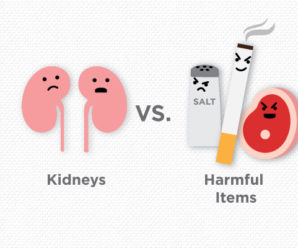
Our hands are at the center of what we do every day. Because of this they are prone to injury, which can make day-to-day tasks difficult. Hand pain or injuries may require you to see a hand surgeon to discuss the possibility of hand surgery.
What does a hand surgeon do?
Hand surgeons take care of the entire hand from the skin down to tendons and bones. They can operate on patients with problems like carpal tunnel syndrome, arthritis and congenital issues and injuries like breaks and lacerations. Hand surgeons can treat both children and adults.
“I most commonly see patients with carpal tunnel and arthritis,” said Dr. David Eisenhauer, Marshfield Clinic Health System orthopedic surgeon. “But I often also see surgical cases for wrist fractures, hand and finger fractures, and lacerations to tendons.”
When should you see a hand surgeon?
Eisenhauer recommends that patients see a doctor within a day or two of trauma to the hands. Additionally, if there has been something that came about slowly but has continued to be bothersome for longer than 3-4 weeks, you should see a doctor.
Severity of your injury or pain will determine whether or not your doctor will refer you to a hand surgeon. Treatment is individualized for each patient. The first step is to try conservative treatments like physical therapy before turning to surgery. If non-surgical treatments don’t work, your doctor may refer you to a hand surgeon to address the problem.
What to expect after hand surgery
Recovery is different for each person based on the procedure. Eisenhauer said there is good blood flow to the hands and not a lot of risk of infection. Typically, patients can expect to take it easy for 1-2 months after hand surgery.
Hand surgery may be the answer to hand-related pain and injuries. However, new technologies are giving hand surgeons more options than ever to provide patients with less painful, less invasive options for solving their hand-related issues.
Technology for hand surgery is helping to improve recovery time. Carpal tunnel syndrome can now be treated through laparoscopy, which involves routing a tiny instrument through a small incision in the wrist. This method is less invasive and painful for the patient and has a quicker recovery time.
Before surgery is even needed, advancements are occurring with medications to treat hand ailments. Eisenhauer says a new medicine can treat Dupuytren’s disease. The disease causes the skin at the base of the fingers to abnormally thicken and the fingers to bend, complicating daily activities. Dupuytren’s disease used to require a surgical treatment. But now, with a new medication, an injection can dissolve the extra growth.
If you are experiencing recurring or ongoing hand pain, talk to your primary care provider.
Related posts
3 Steps to take aver a wrist or hand injury







Leave a Reply